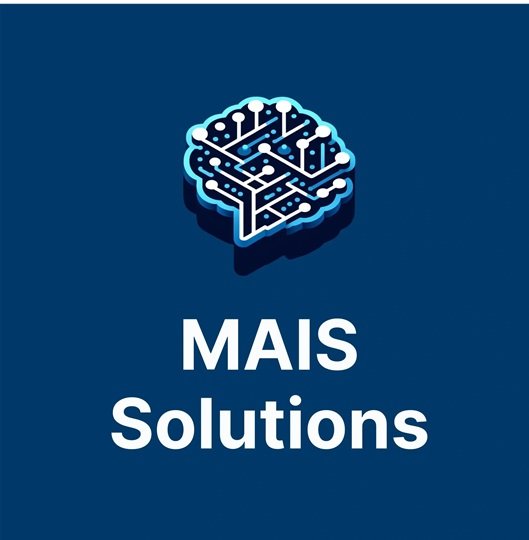Your cart is currently empty!
AI Ethics
Back to: Guide to Noem AI
Artificial intelligence has the power to transform industries, enhance efficiencies, and improve daily life. However, as its potential grows, so do the ethical challenges it brings. Key concerns such as bias, fairness, accountability, and transparency must be addressed to ensure AI serves society responsibly. This lesson delves into ethical principles that guide AI development, offering insights into fairness, transparency, and accountability. By mastering these values, you’ll be equipped to identify and address ethical risks in your projects.
What is Ethical AI?
Ethical AI refers to the development of artificial intelligence systems that prioritize human rights, fairness, and societal well-being. This involves proactively identifying and mitigating potential harms while promoting accountability and transparency. Ethical AI rests on several core principles:
Fairness
Ensuring that AI systems provide equitable treatment and do not discriminate against individuals or groups.
Accountability
Holding developers and operators responsible for AI’s actions and outcomes, ensuring mechanisms are in place to address misuse.
Transparency
Making AI processes and decision-making understandable, enabling users to trust and evaluate its operations.
Privacy
Protecting users’ data and ensuring it is handled responsibly to prevent misuse or unauthorized access.
Risks and Challenges in AI Ethics
Bias in AI Models
AI systems can perpetuate or amplify biases found in training data, leading to unfair outcomes.
Example: A hiring algorithm trained on biased historical data might favor certain demographics, reinforcing existing inequalities.
Mitigation Techniques:
- Use diverse, representative datasets for training.
- Conduct regular bias audits and retrain models when necessary.
- Employ fairness-aware algorithms to balance outcomes across different groups.
Privacy Concerns
AI systems often require vast amounts of personal data, raising privacy concerns and risks of misuse.
Example: Voice assistants like Alexa collect audio data, which can lead to privacy violations if improperly managed.
Mitigation Techniques:
- Minimize data collection and only gather what’s essential for the task.
- Anonymize datasets to protect user identities.
- Adhere to privacy regulations like GDPR and CCPA.
Lack of Transparency
Many AI systems operate as “black boxes,” making it difficult to understand or explain their decisions.
Example: A credit-scoring system denying loans without clear reasons can leave applicants confused and powerless to contest.
Mitigation Techniques:
- Develop explainable AI (XAI) systems to clarify decision-making processes.
- Use visualization tools to interpret model operations.
- Document design and decision processes to enhance understanding.
Real-World Ethical AI Scenarios
Predictive Policing
Predictive policing uses crime data to forecast future crimes. While efficient, it risks perpetuating systemic biases.
Key Questions:
- Does the data reflect unbiased policing practices?
- Are marginalized communities disproportionately affected?
Takeaway: Use fairness checks and engage with diverse stakeholders to validate system integrity.
AI in Healthcare
AI is transforming healthcare with diagnostic tools and treatment recommendations. However, systems trained on homogeneous datasets may exclude underrepresented groups.
Key Questions:
- Does the model perform equally across demographics?
- Are patients informed about AI’s role in their care?
Takeaway: Train models on diverse datasets and ensure transparency with patients and healthcare providers.
Building Ethical AI Systems
Developing ethical AI requires embedding ethical principles throughout the design and deployment process. This involves:
Diverse Teams
Including technical experts, ethicists, social scientists, and community representatives to identify risks and diverse perspectives.
Ethics by Design
Incorporating ethical considerations at every stage, from goal setting to data collection and algorithm selection.
Continuous Monitoring
Regularly auditing and evaluating AI systems to maintain ethical standards and identify new risks in real-world applications.
Stakeholder Engagement
Collaborating with affected communities to design systems that align with their needs and foster trust.
Tools for Ethical AI
Fairness Indicators
Evaluate disparities in model performance to ensure equitable outcomes.
Privacy-Preserving Technologies
Techniques like differential privacy and federated learning safeguard user data while maintaining model utility.
Explainability Frameworks
Tools like SHAP and LIME provide transparency, making AI decisions interpretable for users and stakeholders.
Examples of Ethical AI in Action
Predictive Policing
Issue: Systems may reinforce biases in historical data. Solution: Incorporate fairness metrics and collaborate with local organizations to ensure equitable resource allocation.
Healthcare Diagnostics
Issue: Systems trained on limited datasets may underperform for diverse populations. Solution: Train on diverse datasets and involve patients in feedback loops for continuous improvement.
Practical Steps for Ethical AI
- Foster inclusivity by assembling diverse teams.
- Apply “ethics by design” principles to prioritize societal well-being.
- Use tools like fairness indicators and explainability frameworks to evaluate and refine systems.
- Continuously monitor AI’s impact and evolve standards to address emerging challenges.
Ethical AI is a continuous journey that requires vigilance, collaboration, and commitment to societal welfare. By integrating these practices, you can create AI systems that empower humanity while minimizing potential harms.
Incorporating Noem.AI in Ethical AI Development
Noem.AI offers tools to streamline and enhance the development of ethical AI systems:
- Diverse Dataset Analysis: Use Noem.AI’s dataset evaluation tools to identify biases and recommend corrective actions.
- Explainability Modules: Incorporate Noem.AI’s SHAP and LIME integrations to make model decisions transparent.
- Ethics Audit Automation: Automate regular audits to ensure compliance with ethical guidelines.
- Stakeholder Collaboration: Leverage Noem.AI’s collaborative features to engage diverse teams and gather feedback.
By leveraging Noem.AI, developers can integrate ethical practices seamlessly into their workflows, ensuring systems align with societal values and priorities.
Copyright 2025 MAIS Solutions, LLC All Rights Reserved
